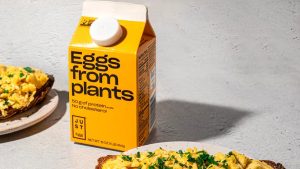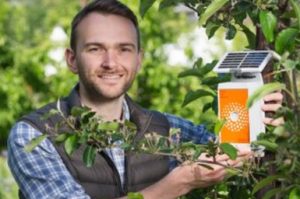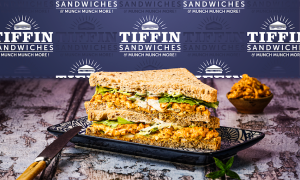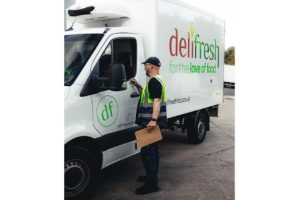Food producers prioritize ethics and transparency
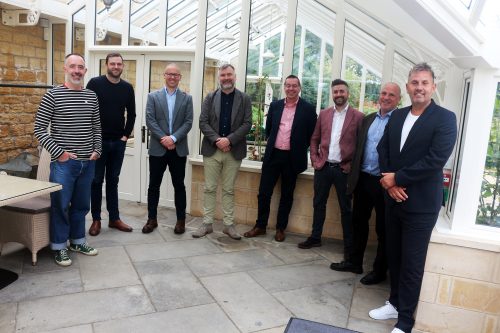
Sustainability is an important factor for food and beverage producers, but some are concerned about accusations of greenwashing.
That’s one of the key themes to emerge from TheBusinessDesk.com’s F&B round table at Bowcliffe Hall, sponsored by specialist investor Isara Capital and law firm Walker Morris.
Josh Lee, co-founder and director at Leeds-based ice-cream makers Northern Bloc, expressed the concern and a possible solution.
“Recently there’s been a lot of press around offsetting by buying carbon credits, with some of the big, major brands doing that and it transpiring that the carbon credit company – it’s now a billion pound market – buying up parcels of rainforest and evicting local people of the rainforest out of that indigenous space, which is clearly wrong.
“The transparency on it is that if you’re going to claim that you’ve offset your carbon, where have you done it? If you can do it in the UK, if you can protect wetlands or peatlands or forests or other things closer to home you can prove what you’re doing. It might not be the most efficient way, but the transparency, being able to touch and feel it, is a good way of doing it.”
Christian Townsley, director at North Brewing, said he preferred to reduce carbon emissions to offsetting, but added, “I’m certainly guilty of being a little nervous of broadcasting what we do, from a marketing point of view, for the fear of being met with cynicism from the public.”
Several other attendees were implementing plans for better sustainability, but importers found it particularly difficult.
Jason Bull, director at Eurostar Commodities, said he had put a team together specifically to look at sustainability. “We’re going for Net Zero 2050, which is going to be very difficult for us because we import things from all around the world on big ships and diesel and emissions, et cetera, so it’s kind of a big thing for us to tackle. Some of the big brands we deal with are already quite far down that road already.”
Ian Bryson, managing director of coffee roasters Lincoln & York, was working with producers. The firm had declared itself a carbon-free roastery, but that did not include shipping from origin as they bought from traders.
“How comfortable are you with that?” he asked. “We spend quite a bit of money working with farms we buy from. If we’re clear on the climate change stuff, by 2030 tea and coffee might not exist.
“It’s all at the origin for us – what’s happening in Brazil and Peru. We spent quite a bit of money investing in a carbon-negative farm in Brazil, who are building a forest.”
Lincoln & York had published its first CSR report a couple of years ago, trying to be clear that they were making a start.
Michael Rice, of Isara Capital, said rules and best practice were constantly changing. “When I’m appraising businesses I look at sustainability quite holistically. End to end, is that business, and the entirety of its supply chain and ecosystem, sustainable? That is, if it doesn’t do anything differently, will it still be here in five or 10 years, or is it exposed?
“Sustainability is about businesses that are going to thrive and supply people for the next generation/ And that’s just good business, by the way.”
James Crayton, partner at Walker Morris, said for years ESG clauses had been about box ticking, but there had been huge changes recently. “It’s now people looking into the details – how do I now employ this and limit and interrogate it? That attitude change – certainly for extended international supply chains – has got to flow through.”
Kirsty Henshaw, founder of healthy ready meals maker Kirsty’s, said there was also pressure from big buyers. “We’re a small business, whatever we do is not going to make a huge difference in the world, but we always try our best.
“But we don’t have the budget to put a team of three people on it.”
She also raised the issue of social impact. Kirsty’s worked with local churches and food banks to help give back.
But Paul McGann, founder and managing director of food marketing specialists Cat Among the Pigeons, said sustainability had become less of a concern for consumers.
“Sustainability is really a discussion point with buyers and investors in developing accounts. All the research I’ve seen is that sustainability has come down in terms of shopper interests. It’s almost that they can’t afford the more sustainable, more costly products. People who would have wanted top act on their morals are now choosing other products that maybe make them feel a little more uncomfortable to get through the family budget.
“When you’re telling shoppers, there aren’t that many brands thriving on selling the sustainability.”
This is the second of two reports from the F&B round table. The first discusses automation and talent in F&B manufacturing.



